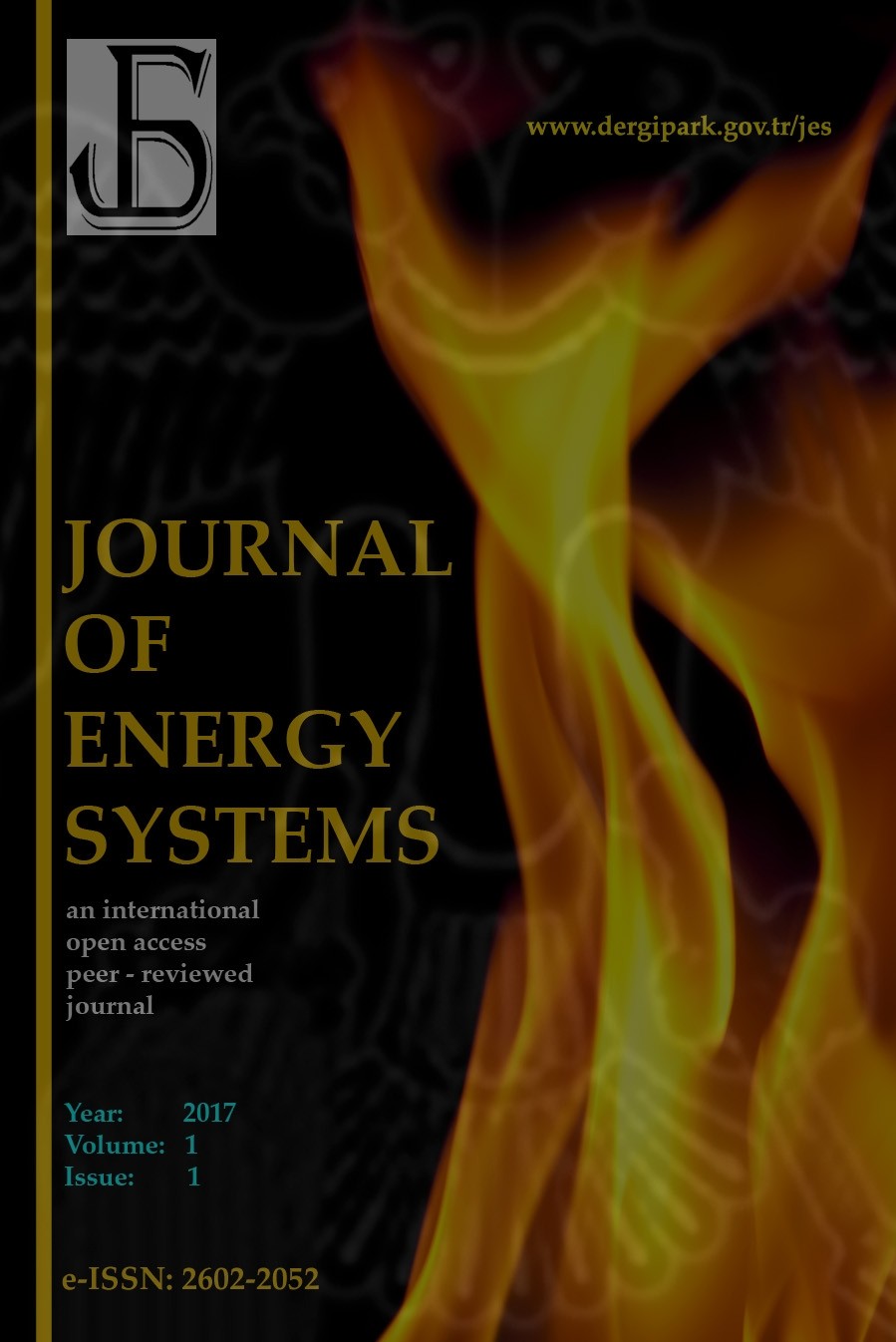Modelling a Possibility Framework of a Smart Self Sustainable Hybrid Power Generation System for a Typical Residential Loading
Modelling a Possibility Framework of a Smart Self Sustainable Hybrid Power Generation System for a Typical Residential Loading
Generation of electricity using fossil fuels could be regarded as the greatest invention of mankind. However, with the depletion of this resource and also due to the effect of burning fossil fuels on the environment, it is imperative to find an alternative to generating electricity for local consumption using non-fossil fuel methods. In the bid to key into the global idea of power generation decarburization and also smart distribution system through the internet of things (IOT), this paper presents an active redundancy possibility framework for generating constant electricity from the motor-generator (M-G) and the battery-inverter (B-I) systems. The specifications of each component can be obtained from design models presented in this paper. The functionality of the system is achieved through the smart home distribution hub (SHDH). Each unit are modeled and simulated to obtain the transfer functions. The result of the residential loading is presented. The simulation results show that the system is achievable and also stable under circumstances which are being monitored and controlled by the smart hub. The framework presented in this paper has proved to be a viable and smart alternative source of electric energy for residential loading.
Keywords:
Power electronics, Motor-Generator Set Battery-Inverter Set, Smart control hub and Reliability,
___
- Adeyemi, A. O., Ayomide, A. Electricity Consumption and Economic Growth in Nigeria. Journal of Business Management and Applied Economics, 2013. 1-14.
- Japan Electric Power Information Center. Overseas Electric Power Industry Statistics. Japan: Overseas Electric ower Industry Statistics,2005.
- Transmission Company of Nigeria.: Nigeria Electricity System Operator-Electricity Power Monitoring and Control. Retrieved 12 09, 2017, from Nigeria Electricity System Operator: https://www.nsong.org, 2017, 12 09.
- Melodi, A. O., Momoh, J. A.,Adeyanju, M. O. Probabilistic Long Term Load Forecast for Nigerian Bulk Power Transmission System Expansion. IEEEXplore Digital Library , 2016, 301-305.
- Hyunjeong, L, Wan-Ki, P., Il-Woo, L. A Home Energy Management System for Energy-Efficient Smart Homes. International Conference on Computational Science and Conputational Intelligence , 2014 (pp. 142-147). South Korea: IEEE.
- Buchholz, B. M., Styczynski, Z. Smart Grids-Fundamentals and Technologies in Electricity Network, 2014. New York: Springer.
- Vaibhavi, S. Y.. Design of Smart Home Energy Management System. International Journal of Innovative Research in Computer and Communication Engineering , 2015, 1851-1857.
- Ryszard, S. Benysek, G. Power Electronics in Smart Electrical Networks. London: Springer, 2008.
- Bauer, E. X., Zhang, Kimber, D. A. Practical System Reliability. New Jersey: Wiley IEEE Press, 2009
- Billinton, R.,Allan, R. N. Evaluation Evaluation of Engineering Systems-Concepts and Techniques. New York: Springer Science Business Media, 1992.
- Krein, P. T. Elements of Power Electronics. New York: Oxford University Press, 1998.
- Robert, E. W., Maksimovic, D. Fundamentals of Power Electronics. New York: Kluver Academic Publishers, 2004.
- Yuriy, R., Sergey, R., Evgeny, C., Voronin, P. Power Electronics Basics-Operating Principles, Design, Formulas and Applications. London: CRC Press, 2016.
- The National Academies of Sciences Engineering Medicine. How We Use Energy. Retrieved December 11, 2017, from What You Need To Know About Energy: http://needtoknow.nas.edu, 2017.
- Sira-Ramirez, H.,Silva-Ortigoza, R. Control Design Techniques in Power Electronics Devices. New Jersey: Springer, 2006.
- Saadat, H. Power System Analysis. New York: McGraw-Hill, 1999.
- Başlangıç: 2017
- Yayıncı: Erol KURT
